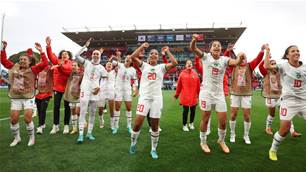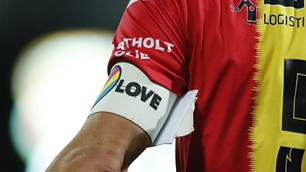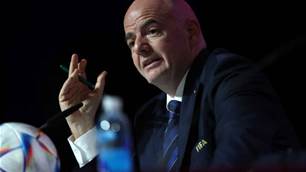FIFA is planning to tighten regulations to further squeeze unlicensed agents out of the game.
The world governing body estimates that only 25-30% of transfers worldwide are conducted by approved agents.
In future it wants all deals to at least involve the participation of a nominated "intermediary" who would be charged with ensuring all details are transparent.
Marco Villiger, FIFA director of legal affairs, said: "We would tell the players and the clubs the kind of responsibilities they have when they get in touch with intermediaries.
"There would be a list of requirements they would have to meet whenever they use an intermediary.
"An intermediary could be a lawyer, a family member or other person who we would endorse. We would strengthen the control of clubs and players if they use such an intermediary."
FIFA will only sanction transfers it is satisfied have been conducted in accordance with regulations.
It hopes this new approach will prevent clubs from pushing through deals only to find they must be blocked.
A committee is discussing the proposal in the hope it can be presented to FIFA's next congress in May 2010.
Clubs that continue to deal with unlicensed agents can expect to be punished severely.
Villiger said: "Whenever we detect someone has not adhered to the regulations we will impose sanctions or the relevant national association will. It is clear these sanctions will be harsh."
FIFA has also announced that all international transfers involving under-18s must be approved by its player status committee.
Villiger said: "With this approach FIFA takes responsibility to tackle the problem and to protect the minors. We will have full control of transfers of minors."
FIFA also wants to prevent the trafficking of youngsters through clubs or third-party academies and all players will have to be registered with national associations.
The governing body is also making good progress in the development of its 'transfer-matching system'.
The new electronic process for recording player moves - which includes details of buying and selling clubs, fee, agents and intermediaries involved, commissions to be paid and bank accounts where monies are deposited - is already being used by 100 associations and more than 1,000 clubs.
It is expected to be rolled out globally by March next year.
In future it wants all deals to at least involve the participation of a nominated "intermediary" who would be charged with ensuring all details are transparent.
Marco Villiger, FIFA director of legal affairs, said: "We would tell the players and the clubs the kind of responsibilities they have when they get in touch with intermediaries.
"There would be a list of requirements they would have to meet whenever they use an intermediary.
"An intermediary could be a lawyer, a family member or other person who we would endorse. We would strengthen the control of clubs and players if they use such an intermediary."
FIFA will only sanction transfers it is satisfied have been conducted in accordance with regulations.
It hopes this new approach will prevent clubs from pushing through deals only to find they must be blocked.
A committee is discussing the proposal in the hope it can be presented to FIFA's next congress in May 2010.
Clubs that continue to deal with unlicensed agents can expect to be punished severely.
Villiger said: "Whenever we detect someone has not adhered to the regulations we will impose sanctions or the relevant national association will. It is clear these sanctions will be harsh."
FIFA has also announced that all international transfers involving under-18s must be approved by its player status committee.
Villiger said: "With this approach FIFA takes responsibility to tackle the problem and to protect the minors. We will have full control of transfers of minors."
FIFA also wants to prevent the trafficking of youngsters through clubs or third-party academies and all players will have to be registered with national associations.
The governing body is also making good progress in the development of its 'transfer-matching system'.
The new electronic process for recording player moves - which includes details of buying and selling clubs, fee, agents and intermediaries involved, commissions to be paid and bank accounts where monies are deposited - is already being used by 100 associations and more than 1,000 clubs.
It is expected to be rolled out globally by March next year.
Copyright (c) Press Association
Related Articles

Morocco blazing a trail for Arab women's football participation

FIFA blasted for OneLove armband threat













